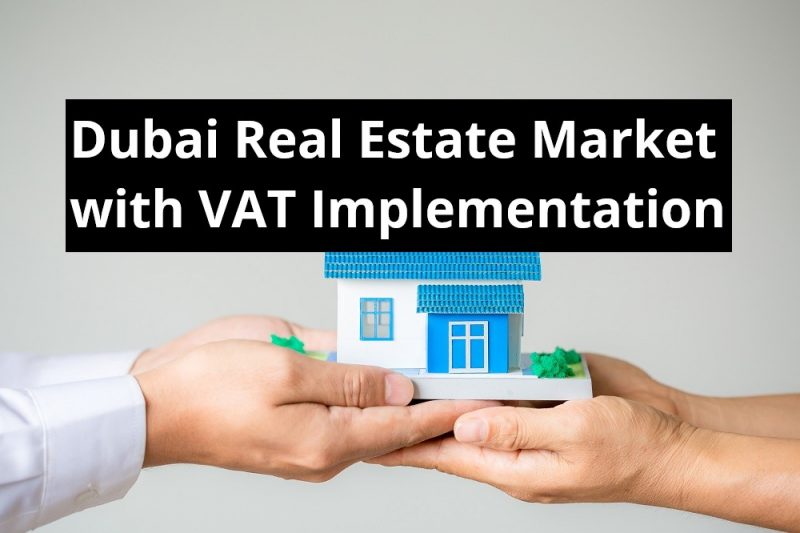The UAE, since January 1st of 2018, implemented Value Added Tax or VAT. VAT is levied on certain products and services, including property transactions that occur across the country including Dubai. UAE only implemented VAT at the rate of five percent, a lot less compared to other countries such as Spain and the UK that charge more than twenty percent VAT.
Despite only being five percent, VAT introduction still raises issues among homebuyers and investors in real estate in UAE. Their issue is tax becoming a problem on cash flow with the funds moving from an account to another. Having to pay a lot more for purchases that are related to property acquisition and development has an adverse effect on the market, generally speaking.
VAT introduction, in particular, for property transactions that occur in Dubai, is unlikely to make a difference in the interests of buyers. A five percent VAT is, after all, a low rate in comparison to other countries’ value-added tax rates. As VAT is a charge from one side, then claimed by the other, there is not likely a huge impact. However, it is important that those who are affected by the VAT implementation in UAE know that there’s a couple of different VAT charges. There is VAT that is charged on supplies that include services offered by a tax registered business e.g. accountants and lawyers and the tax that is levied and paid to suppliers in order to produce services and goods. With VAT, inputs and outputs of a business are to level out with each other. However, sometimes it isn’t possible for VAT to be charged in both ways.
Why? Some goods are considered in the UAE as exempt from VAT or zero-rated. Zero-rated items are the ones wherein the government does not tax for the retail sale to reduce the prices of certain goods. As for VAT exemption, there are certain items in UAE that are exempt from VAT, as its name suggests. When VAT-exempt items are sold, businesses are not to charge customers for VAT. An example of VAT exempt item in UAE is transportation that is for domestic passengers. Zero-rating is applied to international transportation of goods and passengers.
Read also: How To Check Validity Of Tax Registration Number In UAE
VAT on Real Estate Dubai
The first supply for residential properties will be considered as zero-rated in UAE within the three years that passed from its completion. What does this mean? It means developers in UAE will be able to recover VAT for the construction of a residential property including VAT paid on architectural design, contracting, materials used, and consulting.
VAT in UAE and Residential Real Estate
The resale home market has been labeled as exempt from VAT during the point of sale; however, buyers are to pay tax on government fees and commissions that are related to purchases. An individual will have to pay value-added tax on real estate in Dubai only for lease management services and other kinds of property management services.
VAT on Commercial Property UAE
Buyers of commercial properties in UAE will have to pay the VAT charged on both secondary and off-plan market units. Commercial properties that are acquired for leasing purposes to businesses or commercial tenants are subject to VAT but owners are able to charge VAT from tenants. The tenants are charged with VAT from landlords.
Take note: the owner of a commercial property that is in UAE will be required in registering for VAT in the event that its supplies in a calendar year are more than AED 375,000 or in the event that it uncovers its supplies will exceed the mandatory VAT registration threshold in the following month.
Do you have concerns regarding VAT on real estate Dubai market? If so, call us to speak with our regulated tax agents in Dubai.
Read also: Guide On Deregistering Or Cancelling VAT Registration In UAE
Do homeowners need to undergo VAT registration?
There isn’t any requirement for residential property owners to register for UAE VAT unless their other business activities within the country are taxable. Dubai VAT works the same as how it does for other countries wherein private individuals aren’t subjected to tax unless they’re business owners or self-employed, generating a level of revenue that is considered as taxable.
Should there be a cause for worry for investors and buyers of Dubai real estate?
The only issue of VAT in UAE that buyers and investors may be worried about is pertaining to cash flow. The value of properties or real estate units won’t be negatively affected by VAT in UAE. However, VAT will become a factor in considering buying property as well as with accounting matters. There are regulated tax agents in UAE like Farahat & Co and they are best to consult with if you have VAT-related issues that need resolution.
Read also: Applicability Of VAT On Commercial Property And Real Estate In UAE

